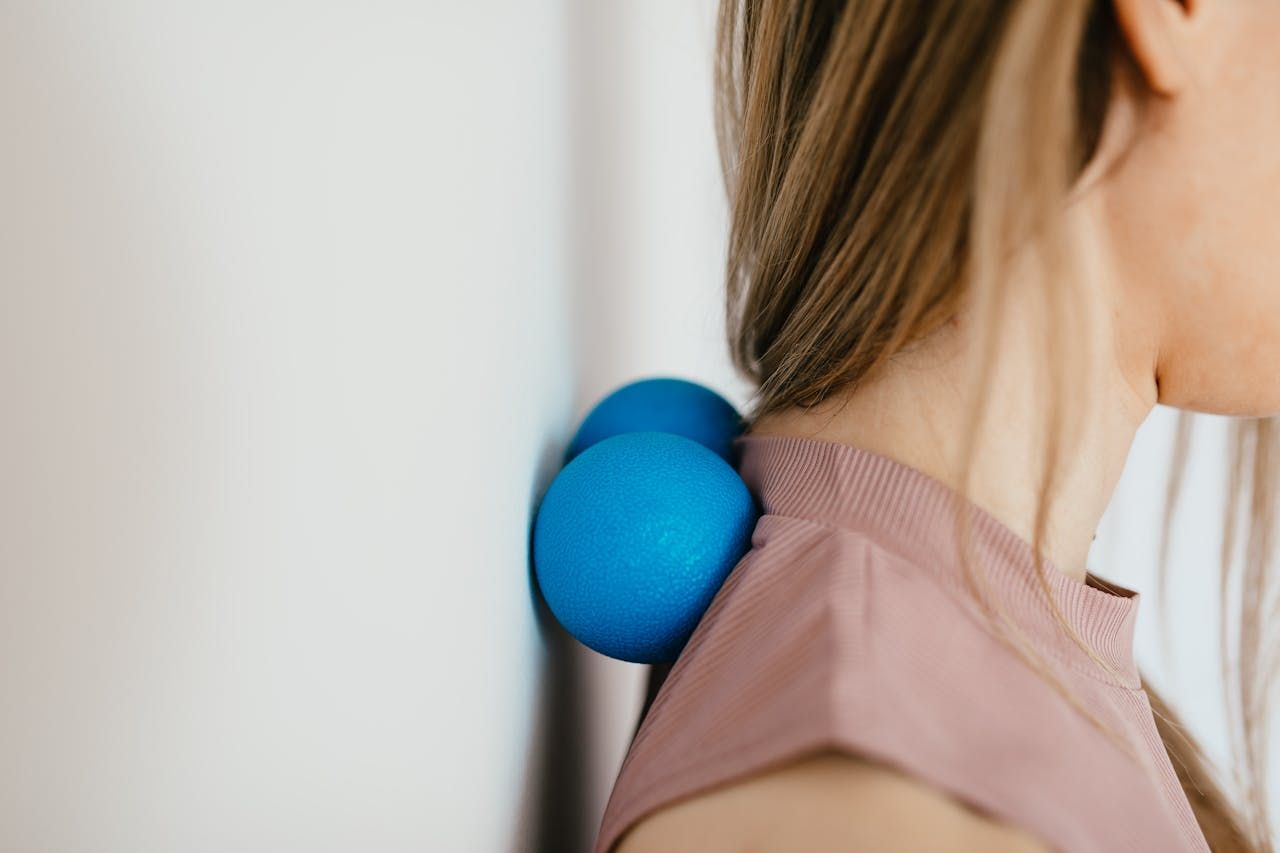How to Sleep With A Crick In Your Neck
Written By Sophie King

A crick in your neck isn’t just annoying, it can wreck your sleep, making it tough to find a comfortable position or stay asleep.
However, there’s a solution in sight.
Proper sleep posture can aid recovery, as it helps to remove neck strain, promote muscle relaxation, and ensure restful sleep, amongst other health benefits.
Best Sleeping Positions for a Crick in Your Neck
Here are the best sleeping positions for a crick in neck and what to avoid:
Back Sleeping — Sleeping on your back with a supportive pillow that maintains the natural curve of your neck helps keep your spine aligned and reduces strain.
Side Sleeping — Another great option is side sleeping. However, you must make sure your pillow is the right height to keep your neck in a straight line with your spine.
Stomach Sleeping — While comfortable, you should avoid sleeping on your stomach, as it can twist your neck and worsen pain.
Training yourself to get used to a new sleeping position isn’t always easy. However, it’s worth it if you can unlock better sleep quality and a pain-free neck.
You don’t have to do it alone, either.
Research shows that using pillows designed for neck support, like adjustable or body pillows, can help maintain proper alignment while sleeping.

How Your Sleeping Position Affects Neck Pain?
Your sleep position plays a crucial role in managing neck pain. If you’re not careful, it can even worsen the pain.
Research has found that people with neck pain and stiffness in the morning spend more time in sleep positions that could aggravate the problem. In fact, over the last 25 years, the number of those with cervical spine neck pain has increased by 21% (Cary, Jacques, and Briffa, 2021).
Poor posture caused by sleeping on your stomach or with a misaligned pillow or mattress can strain the neck and worsen a crick.
On the other hand, sleeping on your back or side with proper pillow support can help maintain spinal alignment and alleviate pressure on the neck. It’s all about maintaining a healthy sleeping posture!
So, choosing the right sleeping position and supportive pillow can make all the difference in preventing neck aches and promoting better sleep.
Extra Help For Sleeping With A Stiff Neck
Knowing how to sleep with a stiff neck involves more than just picking the right sleep position. There are also simple at-home remedies and lifestyle tweaks that can help ease the pain.
Using a cold or warm compress before bed can reduce discomfort and make it easier to fall asleep.
A supportive pillow or mattress, especially ones made from memory foam, can keep your neck and spine aligned, but be sure to choose the right firmness for your needs.
Shop Now
Over-the-counter options like paracetamol, ibuprofen, or topical pain relief gels can help manage symptoms short term, though they shouldn’t be used continuously.
Massage therapy is also worth considering. Studies have linked massage to pain relief (Mak et al., 2024), so both self-massage and professional treatments may help.
Avoid sleeping on your stomach, as it can strain your neck even more. Gentle stretching in the morning and evening can also release tension, but if you’re unsure where to start, check in with a physiotherapist.
When To Go To A Professional
If you’re searching how to sleep with neck pain because you’ve been suffering for over two to three weeks, it’s time to book an appointment with the doctor.
Neck pain comes and goes. However, when it stays for weeks or doesn’t disappear with lifestyle changes, you should consult a professional medical opinion to rule out underlying conditions.
If the pain is extreme, causes numbness in the extremities, or stops you from daily tasks, you should seek urgent care.
Final Words & CTA
Next time you head to bed, remember that sleeping on your back or side with supportive pillows can help maintain alignment and reduce strain.
For ultimate comfort and neck support, try the Groove Adjustable Pillow—a 100% height adjustable memory foam pillow designed to keep you pain-free and well-rested.
Shop Groove PillowsAuthor - Sophie King
Sophie King is a highly experienced osteopath and the founder of OsteoClinics.
She graduated from the British School of Osteopathy in 1985 and went on to establish the Bushey clinic in 1998.
Over the years, she has built a trusted, close-knit team of therapists, all dedicated to supporting patients in achieving optimal health and relief from pain.
References
- Cary, D., Jacques, A. and Briffa, K. (2021). Examining relationships between sleep posture, waking spinal symptoms and quality of sleep: A cross sectional study. PLOS ONE, 16(11), p.e0260582. doi:https://doi.org/10.1371/journal.pone.0260582.
- Hoy, D.G., Protani, M., De, R. and Buchbinder, R. (2010). The epidemiology of neck pain. Best Practice & Research Clinical Rheumatology, 24(6), pp.783–792. doi:https://doi.org/10.1016/j.berh.2011.01.019.
- Mak, S., Allen, J., Meron Begashaw, Isomi Miake-Lye, Beroes-Severin, J., Gerardo De Vries, Lawson, E. and Shekelle, P.G. (2024). Use of Massage Therapy for Pain, 2018-2023. JAMA network open, 7(7), pp.e2422259–e2422259. doi:https://doi.org/10.1001/jamanetworkopen.2024.22259.

